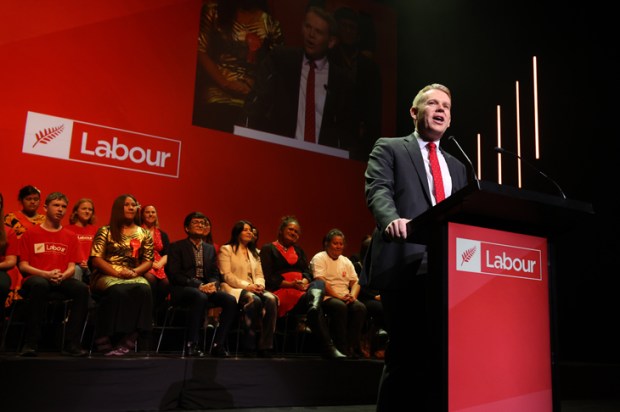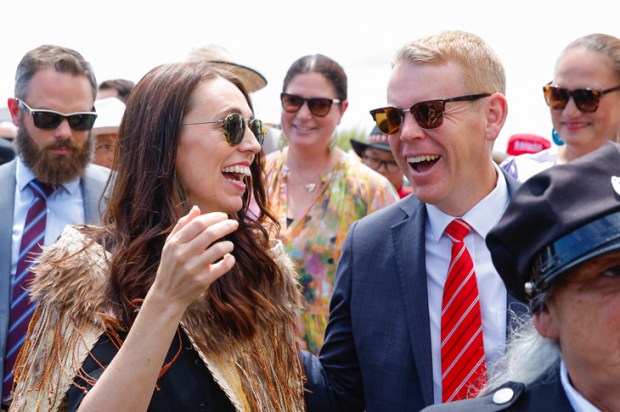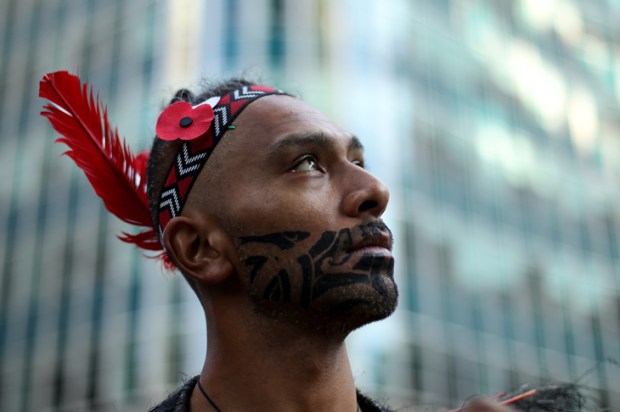What happens when democratic principles collide with cultural values and political self-interest? In New Zealand, that’s starting to look like a quaintly naive question. Jacinda Ardern’s Labour government appears supremely untroubled by accusations of nepotism and conflict of interest swirling around one of its most senior ministers.
Nanaia Mahuta is the Minister of Foreign Affairs and of Local Government. In the former capacity she has been roundly criticised, even by commentators on the left, for keeping such a low profile that she’s mostly out of sight. She is said to dislike international travel – hardly an ideal starting point – and has been unfavourably compared with her Australian counterpart Penny Wong, who made three rapid-fire trips to the Pacific to counter China’s diplomatic incursions while Mahuta remained silent and hunkered down in Wellington. The general consensus is that the demands of the portfolio are beyond New Zealand’s ninth-ranked minister.
But Mahuta’s performance as Foreign Minister is simply a matter of competence. It’s in connection with her other portfolios, past and present, that profoundly disturbing questions have been raised about government integrity.
In dribs and drabs, mostly online in non-mainstream media, evidence has emerged of government contracts and appointments awarded to her husband, William Gannin Ormsby – a man with a criminal record arising from an assault case in which he tried to have his name suppressed – and other members of their extended family. As left-leaning political scientist Bryce Edwards diplomatically put it: ‘There are no actual allegations of any unlawful activity, but just a general suggestion of nepotism.’
The various strands of this tangle of potentially conflicting interests are too complicated to unpick in detail here. Suffice it to say that Mahuta’s husband owns a consulting firm that has won government contracts worth tens of thousands of dollars, including two from government departments in which Mahuta exercised ministerial authority. Another consultancy firm owned by two of Orsmby’s relatives won another contract worth $65,000, again when Mahuta was associate minister of the department concerned.
The same two relatives were contributors to He Puapua, a previously secret government report, commissioned by Mahuta, that has been described as a road map for Maori co-governance based on a radical re-interpretation of New Zealand’s founding document, the Treaty of Waitangi.
Of the five members appointed to a Maori advisory group on waste strategy when Mahuta was associate minister for the environment, three had family connections to her. Ormsby’s company was also paid $73,000 to organise a series of workshops and community meetings on Maori housing, although in that instance Mahuta had no ministerial involvement.
But wait, there’s more. Mahuta’s younger sister, Tipa Mahuta, is the co-chair of a Maori advisory group helping to implement the highly controversial Three Waters plan, which would give Maori interests a 50-50 say in the governance of the country’s water infrastructure. The Three Waters plan is Nanaia Mahuta’s signature project in her role as local government minister – one that she’s determined to drive through in the face of overwhelming opposition from city and district councils.
Tipa Mahuta is also co-chair of the powerful Waikato River Authority and co-chair of a national Maori Health Authority that will play a key role in re-shaping New Zealand’s public health sector as part of a grand Labour plan to end democratic local input into health services.
Nanaia Mahuta appears to have behaved with utter disdain for the Cabinet Manual that supposedly guides ministerial conduct. While technically complying (in one case by delegating responsibility for the appointment of her sister to a fellow minister), she appears to have brazenly disregarded the manual’s explicit warning that public perceptions can be as important as actual conflicts.
Some context might be helpful here. Mahuta is regarded as wielding serious power in a government that has embarked on a decolonisation crusade. Although only one of five ministers in Ardern’s cabinet who identify as Maori, she is seen as the leader of Labour’s 15-strong Maori caucus – widely regarded as the dominant faction in the party.
What is perhaps equally significant is that in the Maori world, Mahuta is literally royalty, being a niece of the late Maori queen Dame Te Atairangikaahu and a cousin of the reigning Maori king, Tuheitia Paki. While the king has no constitutional authority, he is an influential figure in the Maori world. Politicians of all stripes, Pakeha (European) as well as Maori, pay homage to him regardless of whether he has done anything to earn their respect. (The late Maori queen was a highly respected figure; her son rather less so.)
Mahuta accordingly wields influence that transcends her political office and enjoys what might be called protected status in a party that relies heavily on the Maori vote. Besides, it would hardly be surprising if, having grown up a privileged member of a tribal elite, Mahuta felt a sense of entitlement and perhaps even a degree of immunity from the normal rules of politics.
The response from Mahuta’s office to claims of conflict of interest is that they were properly disclosed and managed. Mahuta herself was glib almost to the point of being flippant: ‘I’ve got a talented whanau [extended family],’ she’s quoted as saying. But merely disclosing potential conflicts doesn’t make them right. The suspicion inevitably lingers that favouritism was exercised – if not directly, then by people motivated to please their minister.
The problem here is that what constitutional purists would categorise as nepotism, many Maori people would justify as simply looking after your own whanau or tribe – a cultural imperative in the Maori world. But anyone bold enough to point out that looking after your own is incompatible with proper constitutional practice – and more specifically, the principle that appointments should be made and contracts awarded on merit rather than notions of familial loyalty – risks being denounced as a racist.
Got something to add? Join the discussion and comment below.
Get 10 issues for just $10
Subscribe to The Spectator Australia today for the next 10 magazine issues, plus full online access, for just $10.
You might disagree with half of it, but you’ll enjoy reading all of it. Try your first month for free, then just $2 a week for the remainder of your first year.














Comments
Don't miss out
Join the conversation with other Spectator Australia readers. Subscribe to leave a comment.
SUBSCRIBEAlready a subscriber? Log in